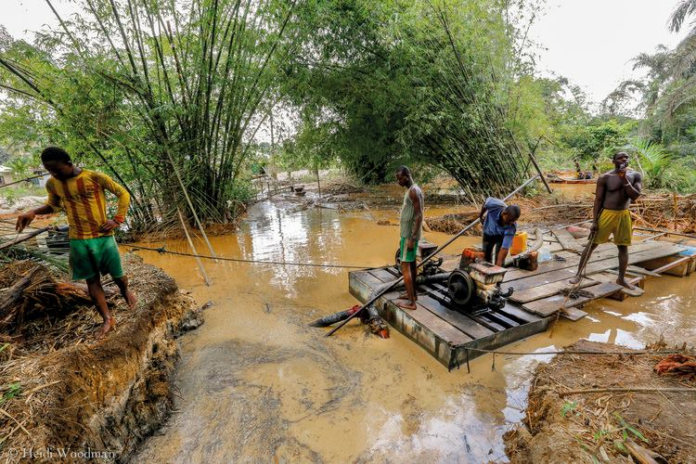A policy analyst and gender advocate, Dr Araba Etrew, has called for the declaration of a state of emergency in Ghana to address the alarming situation of illegal mining, commonly known as galamsey.
According to Dr Etrew, the galamsey crisis is escalating, and if immediate action is not taken, the country will face consequences it may not be able to manage in the near future.
“What I want to see that I’m not seeing is a state of emergency, we haven’t declared that. If we can declare a state of emergency and say the ministry has locked up our ocean and for the sea to rest, then we can declare a state of emergency over our forest belt, on our water bodies so that the rivers will rest, the forest belt will also rest,” she said.
Speaking on Newsfile on Saturday, October 5, she said the government needs to demonstrate strong political will and avoid turning the fight against galamsey into partisan politics.
Dr. Etrew warned that, the country cannot afford to wait until the situation worsens, especially as the mining practices currently in use are unsustainable.

She further highlighted the inconsistency in the country’s approach, pointing out that while Ghana recently signed the Presidential Compact on Water, Sanitation, and Hygiene (WASH), which aims to provide $1.7 billion annually for WASH services, the country’s water bodies are being destroyed by galamsey.
“It is as if we’re just signing onto international treaties without concrete action back home,” she stressed.
Dr Etrew also questioned how Ghana could fulfill the commitments of the compact when its water bodies and forests are already being devastated by illegal mining, noting that Ghana is the first country in West Africa to sign onto the compact.
“I feel that if organised labour is the way to go, then we need to sacrifice. Our ancestors did the sacrifice for us to get independence,” she said.
She reiterated the need for a collective effort, urging all sectors of society to unite in the fight against galamsey.
“We need civic education and massive reforms everywhere across board in both the private sector and private sector. NCCE and civil society organisations, media organisations and educational sectors, everybody has to come on board on this,” Dr Etrew added.
ALSO READ:

